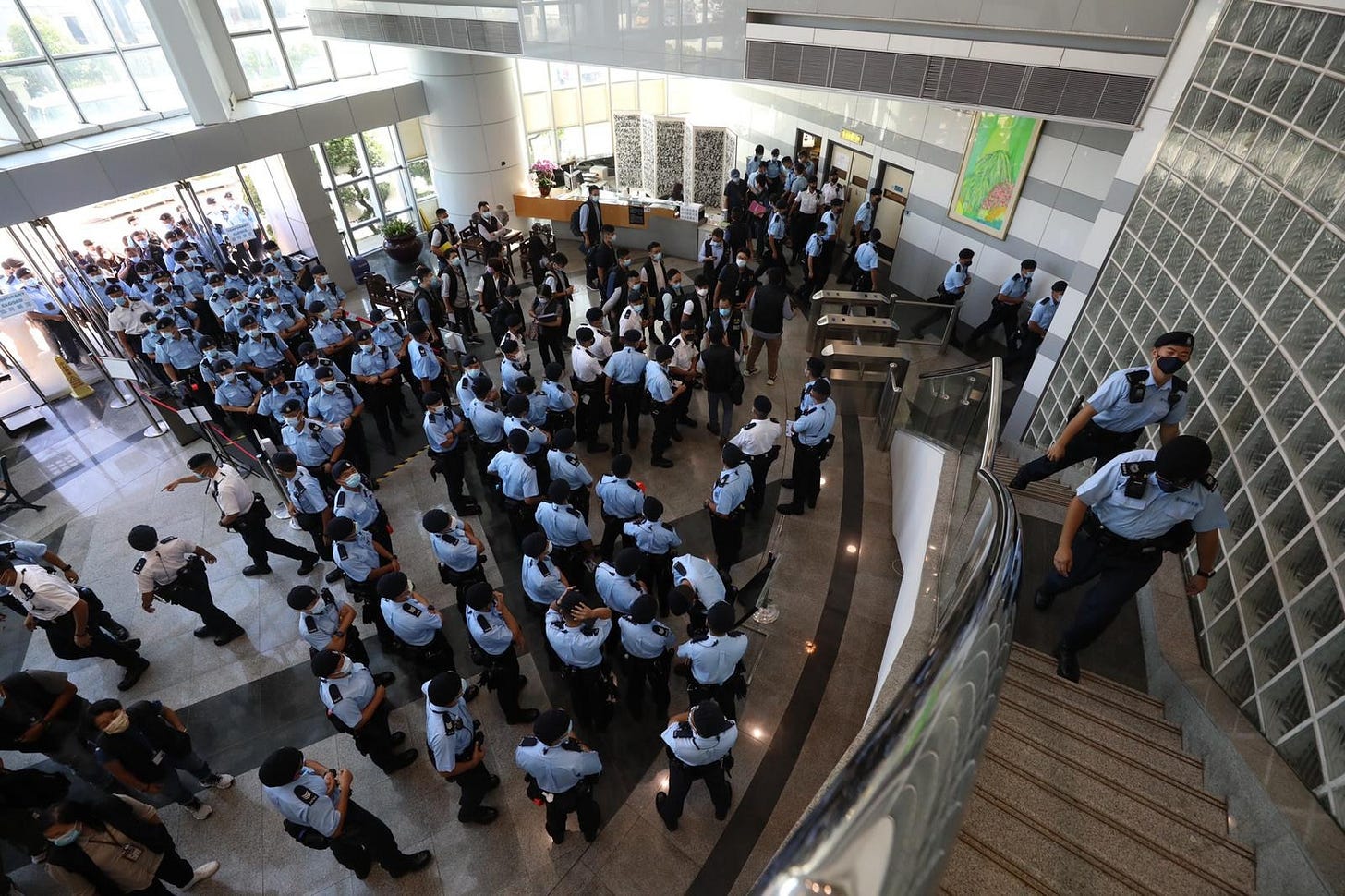Democracy is being tested and democracy is losing. What else can one conclude from the latest mass-roundup of journalists in formerly free Hong Kong?
Just days ago, President Biden pondered how people would look back at the G7: “Did they step up? Are democracies as relevant and as powerful as they have been?”
The answer is no.
On Thursday morning, Hong Kong police once again raided the headquarters of Apple Daily, the only major pro-democracy newspaper in Hong Kong. Previously the authorities in the former colony locked up Jimmy Lai, the paper’s founder, along with the brain trust of the pan-democrats who actually speak for the people of Hong Kong.
This time the authorities used the phony national security law promulgated by Beijing to arrest the backbone of the media organization’s editorial staff: CEO Cheung Kim-hung, COO Royston Chow, Chief Editor Ryan Law, Associate Publisher Chan Pui-man and Platform Director of Apple Daily Digital Cheung Chi-wai.
Do any of these men pose a threat to national security in China? Maybe they do insomuch as they believe in a free media. Each man opposed violence in protesting Beijing’s encroachment on Hong Kong and its reneging on promises of relative autonomy in winning back the colony from Britain. Each man advocated only non-violent expressions of will. Perhaps that is the most subversive political position of all. How else can a small number of brave men and women challenge the might of the Chinese Communist Party?
But why are Beijing and its pawns in Hong Kong doing this now? The answer is that it is enormously frustrated by the will of Apple Daily—and by extension the people of Hong Kong—to persist. It is one thing to enslave a population that has always been enslaved. It is quite another to take freedom away from people who have enjoyed it for all of their lives. Hong Kong’s success as a free Chinese city has always been a dire threat to the Chinese Communist Party.
Where is the world? Infringements of press freedom occur every week around the globe, but this regression is occurring at one of the most important ideological battlefields of our time. The fight between the free world and China’s illegitimate, tyrannical government is global in nature but comes to a point in places like Hong Kong. Despite serious setbacks, the quest for freedom there lives on—and will always live on as long as locals and free people in the outside world care about freedom and security from the menace of communism. It cannot be extinguished by Beijing.
The power of the free world is not unlimited, but it is significant. How much more must China’s government do to earn its proper place as the pariah of the world?





